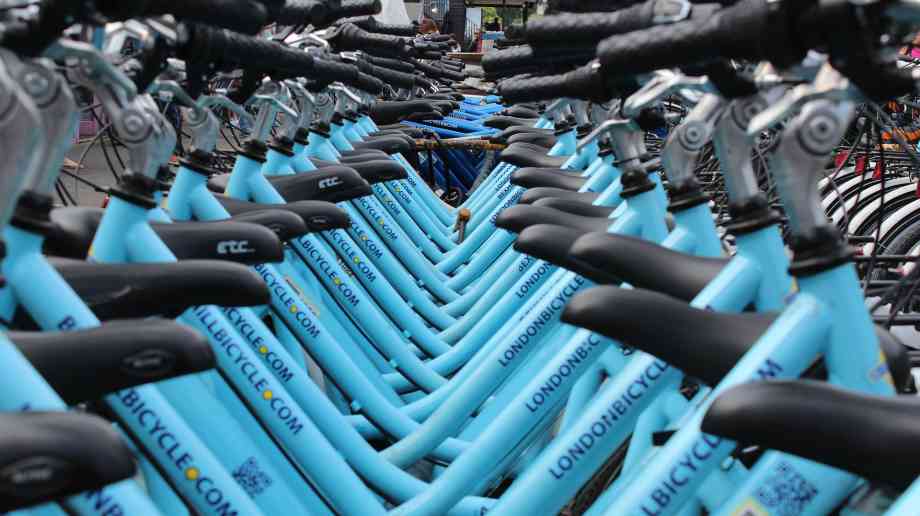Sue Robb of 4Children talks to Julie Laughton and Alison Britton from the Department for Education about the role of childminders in delivering the 30 hours free entitlement.
Government needs to make more ambition cycling targets

A new report from the Transport Select Committee says that the government needs to revise its Cycling and Walking Investment Strategy as current targets for cycling and walking are not ambitious enough.
The Active Travel: increasing levels of walking and cycling in England report outlines a compelling case for the government to set targets and a strategy for enabling people to get out of their cars and make the switch to active travel for short trips or as part of a longer journey.
MPs warn that the economic, human and environmental costs of inactivity, climate change, air pollution and traffic congestion are huge. Increased levels of walking and cycling can help combat all of these and urges policy makers to give it the attention it deserves.
Therefore, the committee says that leadership from the government through more ambitious targets and increased funding must signal to local authorities and the public that active travel is a priority with long-term benefits for individuals and the country as a whole.
The £2 billion which the government has said will be spent on active travel in this Parliament is welcome but equates to £400 million a year. This is a tiny sum compared with spending on other areas of transport, just 1.5 per cent of total government transport spending. The committee recommends a dedicated funding stream for delivering improvements which will increase levels of walking and cycling and increased total funding for active travel.
Lilian Greenwood, chair of the committee, commented:“We know that transport comes with a health warning. Road transport is the single biggest contributor to poor air quality and is responsible for some 80 per cent of roadside nitrogen dioxide concentration. Around a quarter of the UK’s greenhouse gas emissions come from transport. However, by the end of 2017, there were over 26 million licensed vehicles in England, an increase of over 35 per cent in the last 20 years.
“We also know that getting active by walking and cycling as part of our daily routine is good for us. It’s good for our health and saves on the cost of healthcare. It can reduce congestion, improve air quality, increase productivity and drive footfall in our town centres. There is no battle here – except for hearts and minds. In England, the vast majority of journeys over a mile are made in a car or van. Even for distances of one to two miles, more than 60 per cent of journeys were made by motor vehicle and fewer than two per cent of journeys are made by bike.
“The government must stand up for active travel. It must show real leadership by setting ambitious targets for cycling and especially walking. It must give local authorities the support and funding they need to engage the public and make active travel a priority in their areas. It must do whatever is necessary to persuade more people to get on their bike, or Shanks’ pony.”
Paul Tuohy, chief executive of Cycling UK, said: “Investing in safe, convenient and attractive conditions for cycling and walking is a hugely cost-effective way to deliver a wide range of benefits, and we commend MPs from the select committee for their diligence in understanding the urgency of this issue.
“After the government admitted its current policies will only deliver a third of what is needed to meet its 2025 cycling targets, it’s now vital that it seriously commits to improvements to cycling and walking infrastructure, to benefit communities across the country and to meet its own environmental and health ambitions.
“We share the opinion of the previous transport minister that the walking target is too low; we need a new target which is much more ambitious. Interventions aimed at increasing levels of walking are very cost-effective and should complement infrastructure spending. They will also be integral in helping to prevent a series of long-term illnesses from physical inactivity, including stroke and dementia.”
Company Focus
Just Lanyards is a subsidiary name of Gifts 2 Impress Limited, who have been trading for over 25 years, we therefore pride ourselves in having endless experience covering all aspects of the promotional merchandise industry.
Event Diary
UKREiiF has quickly become a must-attend in the industry calendar for Government departments and local authorities.
The multi-award-winning UK Construction Week (UKCW), is the UK’s biggest trade event for the built environment that connects the whole supply chain to be the catalyst for growth and positive change in the industry.
Supplier Profiles
Geo Energy
At GeoEnergy Design, we're on a mission to disrupt the traditional way heating and cooling ha
Latest Features
Professor Harith Alani, director of the Knowledge Management Institute at the Open University explains how AI can be used for good and bad.
Alex Lawrence, head of health & social care, techUK sets out techUK’s Five Point Plan for CareTech.

















